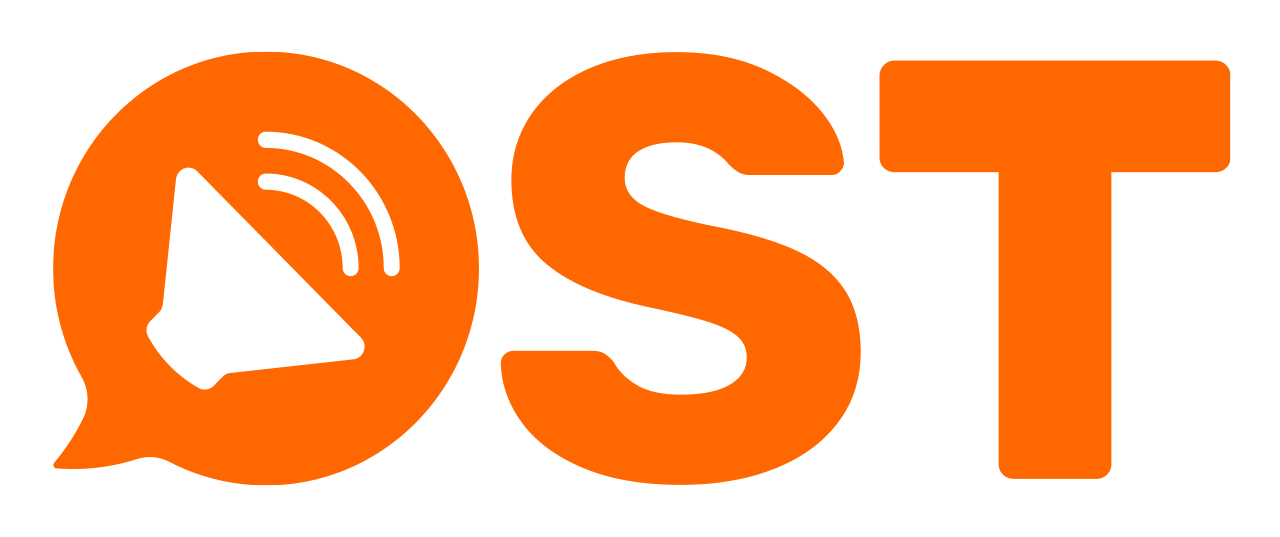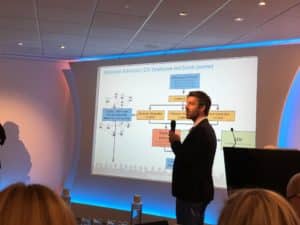Influencer Marketing Huddle – Expert Insights
This week we hosted our Influencer Marketing Huddle once again with co-hosts, Onalytica. Our mission? To bring 100+ brands together to share strategies, tips and experienced on influencer marketing. If you weren’t able to attend, fear not – we have a breakdown of the day here…
The day began with our hosts, Luke Brynley-Jones, OST’s managing Director, and Tim Williams, CEO of Onalytica tackling some of the challenges facing the industry head on – explaining how the growing fake follower/engagement scandal is closely tied to poor measurement practices, and how the focus on celebrities vs more trusted micro-influencers leads to bloated and under-performing outcomes.
We then had an inspiring case study from Teri Donovan from Cisco – ‘How Cisco implemented influencer marketing into their marketing mix’. Teri explained how she set out on a ‘journey’ to connect influencers with Cisco EMEAR. She described creating a mutually beneficial opportunity for both Cisco executives and influencers to build their profile and credibility together. Having a senior ‘Champion’ allowed her the space to run the project. Getting buy-in from multiple teams allowed her to deliver results without treading on toes.
We then asked our attendees to discuss the key challenges and solutions of influencer marketing. Many still struggle to identify, segment and engage with influencers – which we know is a common issue. The solution is around focusing on specific keywords, identifying a small list of influencers, and reaching out to them. Aligning internal teams was also a major challenge – since many teams have relationships with media and influencers. Putting influencer marketing at the heart of your social strategy helps raise it to the level where this issue can be agreed centrally really helps.
Next up we headed into a panel discussion with our tech influencers Bill Mew, Jane Frankland and David Clarke, known for their expertise on, respectively, online privacy, security and GDPR, sharing their experiences of partnering with brands. They stressed the importance of ensuring their values are aligned with the brands. When values are shared, influencers are happy to contribute more on a mutual value exchange basis (i.e unpaid), but they do expect payment when they are contributing directly to a marketing activity. Brands should approach them with a clear brief that allows them a high degree of editorial leeway and doesn’t make demands. They are happy to promote products, but not to sell.
Next up came our employee advocacy presentation hosted by Sarah Goodall, founder of Tribal Impact and Tim Williams of Onalytica. They described a range of social media opportunities for different types of employee. An Inactive User is an employee who uses social media when it suits them, to quickly check personal things and swiftly log off; a thought leader (and influencer) are employees who are actively making organic content and sharing others content. Their key message was:“It’s about building a pipeline of relationships rather than a pipeline of revenue” (Sarah Goodall).
We then heard from Alistair Wheate and Dominik Nosalik as they share the findings of a fascinating survey into Brand vs Influencer perceptions of influencer marketing. Apparently 52% of influencers engage with brands to be more influential on a certain topic, while just 14% are focused on getting paid. Interestingly, influencers are unmoved by offers of free event tickets, but they do want to receive access to new research or product information. We’ll be publishing a longer expose of this research shortly.
We ended the day with two panel discussions, firstly a discussion talking with Petya Stefanova (Netapp), Marie Faulkner (Marie Curie), Darian Simms (Canon) and Olly Lynch (Travelport). Petya and Olly described their use of influencer marketing to “change the perception a large, dinosaur tech brands”– as opposed to increasing reach or driving sales. Petya linked back to Sarah and Tim’s presentation earlier and agreed that staff advocacy is key: “Every staff member should be an influencer”. Marie made an interesting comment about brands and people “Nobody wants to hear from a brand. We’re tuning out adverts. People want to connect with people, not brands”. Darian suggested that brands should use influencer marketing throughout the sales journey; to drive reach, reaffirm messaging and help close sales – a topic we’ll be addressing in the next Huddle.
The last panel of the day rounded up the discussions with Luke Brynley-Jones, Scott Guthrie (CampaignDeus), Owain Williams (Make It Mana). Scott talked about the backlash against influencers with fake followers and generating fake engagement, describing it as necessary reality-check for the industry. The panel then talked about the question about whether big stars are better than mirco-influencers. Luke cited a brand for which reality TV star promoted content on Instagram and received massive reach/engagement, but 50% of the engagement was negative. Was that a positive outcome?
Scott cited “banjo” influencers – ones who just ‘bang’ out the next ‘job’ for a fee. The panel agreed that these individuals are destroying their own brands – which is based on trust. We then discussed privacy/GDPR and Luke explained how influencers aware usually seen as ‘public figures’ and therefore would expect companies to store their social account details and use them to engage with them.
Overall the Huddle was a morning full of inspiring people with informative discussions. If you didn’t manage to make this one and want to attend the next – please contact us. You can also read highlights from the day on Twitter at #IMHuddle.





